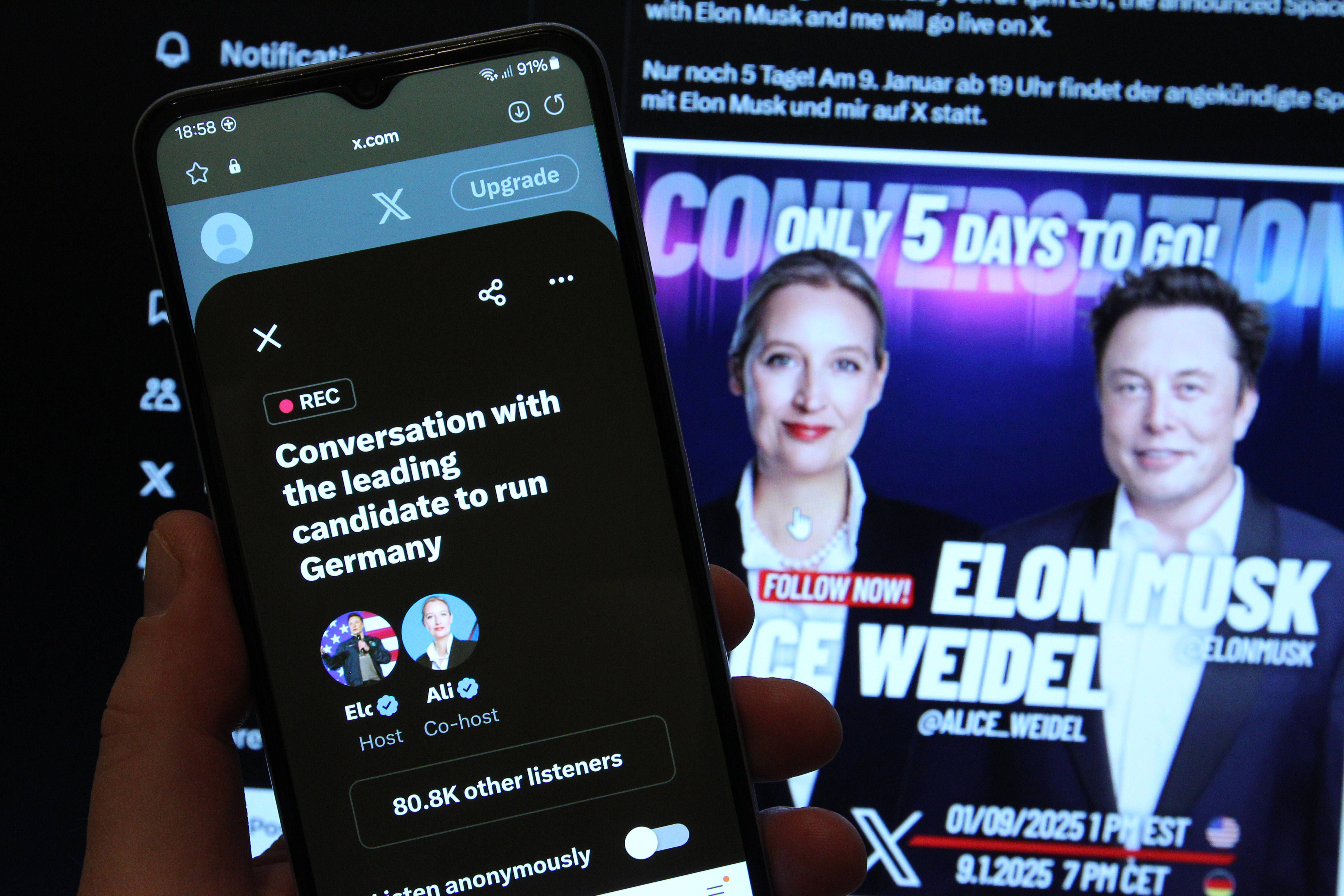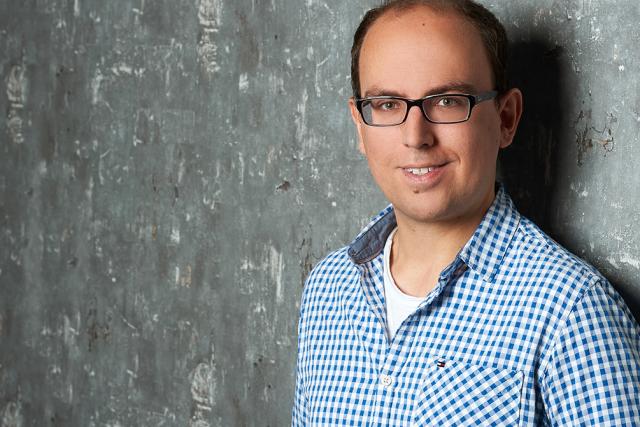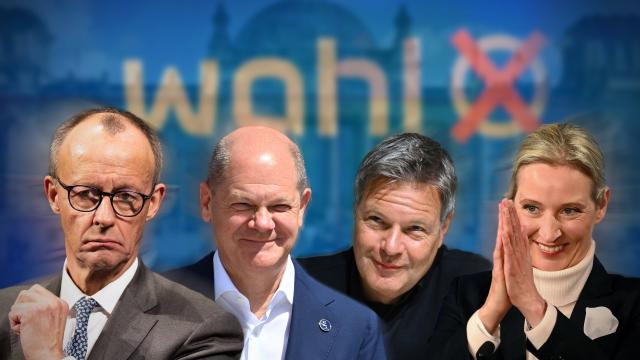

Clicks for conflicts: Digital communication is shaking up our political culture – isn't it?
Mr von Sikorski, when do citizens trust politics?
Christian von Sikorski: When they are convinced that political institutions and their representatives act in the best interests of the population. And when they have the impression that political processes are fair and transparent, and that the authorities and the legal and judicial systems function reliably. The government and political institutions should be responsive to citizens' needs and at least partially deliver on campaign promises. In addition to a certain level of social prosperity, politics should create an atmosphere of respect in which different groups and perspectives can be heard. Trust between citizens and political institutions is fundamental to democratic systems. It forms the basis for the stability of the political system and enables democratic norms to be upheld, such as the acceptance of political decisions, the recognition of election results and the willingness to participate in the political process.
When does trust disappear?
Christian von Sikorski: At least in the short term, corruption and political scandals can undermine trust, as can a failure to respond appropriately to crises and grievances. For example, natural disasters, economic or health crises such as the coronavirus pandemic. Inequality, the exclusion of certain groups and high levels of political polarisation - for example, over the handling of migration or the heated debates surrounding the coronavirus pandemic - also reduce trust in politics.
Why is this a problem?
Christian von Sikorski: A lack of trust can lead to the delegitimisation of political institutions and political actors. This threatens the functioning of democracy. Lack of trust can lead to political apathy, abstention from voting and the emergence of populist or extremist movements. As a result, the political cohesion of a society declines, which can significantly undermine democracy's ability to solve problems and achieve social consensus. If politics is permanently unable to solve problems perceived as such by the population, trust and willingness to participate in politics can decline sharply. Populist actors can take advantage of such "periods of weakness" to attack institutions, as can be seen, for example, in the US, but also in other authoritarian states interested in destabilising a functioning liberal democracy.
What is the role of the media?
Christian von Sikorski: It plays an important role, especially in current events such as election campaigns or crises. If the coverage is balanced, for example, if an economic crisis is looked at from a scientific perspective and from different angles, people generally react differently and generally attribute more credibility and reliability to the information than if they are exposed to one-sided or erroneous posts from political influencers with a specific agenda on social media. On digital platforms, algorithms that favour a particular design when displaying content also appear to be a factor. A calm, nuanced and balanced political message tends to be at a disadvantage.
So respectful and balanced communication builds trust. On digital platforms, we often see the opposite. So we have a problem, don't we?
Stephan Winter: Yes. In the current situation, what is needed or desired for political trust does not match what is reinforced on social media. But I wouldn't be so pessimistic as to say that social media inevitably leads to polarisation. Perhaps this is just the current historical state of affairs, or the way social media platforms are currently designed. I still have hope that social media can be used or adapted in the future so that it doesn't always emphasise the conflictual. And in the past there have been positive democratic effects of social media, for example for pro-democracy networking during the Arab Spring. But in the current constellation of the political situation and the orientation of the platforms, it doesn't look good.
Christian von Sikorski: I agree. In Germany we also see that many people consume a mixture of information from different media. Of course, more and more people are using social media and encountering political content, including misinformation and heated and polarising posts. At the same time, we still have relatively strong public broadcasting and other traditional media, which continue to be used by many and are also present on digital channels. In countries with weakened journalistic institutions, where social media is the dominant source, we have a very different situation. There, people rely almost exclusively on social media for their information.
Does that mean you have to differentiate between media channels?
Christian von Sikorski: Yes, you have to keep in mind that people often don't use social media primarily for political information. They open Instagram or TikTok to see what's going on, but that's not the same reception behaviour as when they specifically turn on the news and rely on that news source. These streams of information run in parallel. That makes it difficult for us to analyse them in isolation.
Stephan Winter: We have to differentiate between platforms. Social media is not a single category. X or Facebook work differently than TikTok or Instagram. On more visually oriented platforms like TikTok or Instagram, the main content often comes from influencers, celebrities or other social media personalities. Even as traditional media expand their activities there, journalistic content is comparatively less present. The question then becomes: How credible is the content being shared? What are the problems?
Christian von Sikorski: In a current research project, for example, we are investigating how the followers of selected influencers can be influenced not only on lifestyle and consumer issues, but also on political and social topics. For example, when it comes to getting involved in climate protection or developing a particular political stance. It's exciting because it allows us to reach people who otherwise don't consume traditional news, and we're starting to see evidence that influencers can actually be a kind of bridge to political information in traditional journalistic media.
What is the general view of media psychology on opinion formation through social networks?
Stephan Winter: Among other things, we see complex interactions, for example that certain characteristics of media reinforce human tendencies. For example, we tend to favour information that confirms our point of view. We call this the confirmation bias. The influence of social media can then be to reinforce this tendency by providing content or algorithms that match our opinion.
Why do some people trust platforms as their main source of information when they are more critical in other areas?
Stephan Winter: People judge the credibility of information sources differently. Many consider traditional journalism to be credible, while others – often people with more extreme views – do not. But the process is similar: I use the source as a clue to decide whether to accept a piece of information. The second important point is the content of the message: if a message contradicts my world view, I experience cognitive dissonance, i.e. I find the situation unpleasant. I want to avoid it. If I tend to get or find content on a social media platform that confirms my opinion, I am inclined to consider it credible and use it further.
What role do the much-discussed algorithms play in reinforcing filter bubbles and echo chambers?
Stephan Winter: Algorithms can reinforce the tendency I just mentioned by playing content that conforms to opinions. However, pure echo chambers, where almost only like-minded people communicate with each other, are rare and only found in extreme groups – but that's where they can be relevant.
What can be done to counteract distortions and disinformation?
Stephan Winter: Users can try to be aware of their own biases and make the channels they subscribe to more balanced. Politicians should demand more transparency from platforms, for example about how algorithms work. In general, there is no universal remedy, but there are different approaches: fact-checking and corrections are effective, especially if they offer an alternative explanation and educate about common mechanisms of disinformation. It is also important to educate people about why it is important to get balanced information, and this can start at school.
But now we are seeing a move away from fact-checking in the US, for example at X and Meta.
Stephan Winter: Yes, if the availability of disinformation increases and fact-checking decreases at the same time, this is undoubtedly problematic for democratic discourse. Especially with X, we are dealing with a mixture of political and economic interests. This is a highly problematic situation that would have seemed unthinkable not so long ago. The fact that the US government wants to influence the way social media platforms moderate content in Europe is also explosive.
Despite these developments, do you see opportunities for digital communication to build trust?
Christian von Sikorski: Journalists should not completely adapt to the logic of social media, but continue to uphold their journalistic values. Especially when it comes to not leaving social media to the loudest.
Stephan Winter: Giving up is not an option. Even if research does not yet provide 100% solutions, it is certainly important for politicians not to leave social media to the political fringes, to seek dialogue on equal terms, to deal openly with uncertainties in political processes and decisions, and to ensure that different population groups are represented. This includes, for example, the visibility of younger parliamentarians.
One last question: How does it feel to be in the thick of things in your own field of research?
Christian von Sikorski: We are definitely in demand. The situation is so dynamic that it is often a tightrope walk between jumping on current developments and concentrating on our fundamental and more long-term research topics: political polarisation, social media influencers as news sources, and artificial intelligence and media communication.
Stephan Winter: Recent developments, especially in the US, have also surprised me personally. I would not have expected a platform like X to focus its algorithm on extreme content to such an extent. This is worrying for citizens and researchers alike. The research situation is also very fast moving. New work is coming out all the time and it is sometimes difficult to keep up with technical and social developments. There is a risk that research will lag behind reality.
Our approach is therefore to develop more general theories that apply not only to X, but more generally to the mechanisms involved in the perception of true and false information in social media. To do this, we conduct sophisticated studies with subjects, analysing different contexts, so that we don't just say "it's social media's fault".

You want a deeper insight?

Take a look at the selection of scientific publications of Prof. Dr. Christian von Sikorski und Prof. Dr. Stephan Winter.
Winter, S. (2023). Verschwörungstheorien in sozialen Netzwerkseiten und Messenger-Diensten aus medienpsychologischer Perspektive. In: R. Imhoff (Ed.), Die Psychologie der Verschwörungstheorien – Von dunklen Mächten sonderbar belogen... (S. 83-100). Göttingen: Hogrefe.
Klebba, L.-J., & Winter, S. (2024). Crisis alert: (Dis)information selection and sharing in the COVID-19 pandemic. Communications – The European Journal of Communication Research, 49(2), 318-338.
>> VIEW PAPER
Winter, S., Remmelswaal, P., & Vos. A. (2022). When posting is believing: Adaptation and internalization of expressed opinions in social network sites. Journal of Media Psychology, 34(3), 177-187.
>> SEE PUBLICATION
Emily Kubin, Christian von Sikorski: The Role of (Social) Media in Politica Polarization: A Systematic Review. Annals of the International Communication Association 45 (3) 2021.
>> GO TO ARTICLE

These topics might also interest you:


